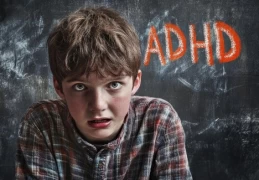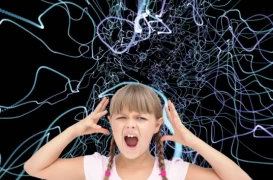
After the Earthquake
- After the Earthquake
- It's Not The Earthquake It's Frightening, It's Possible Consequences.
- The Human Brain Reacts to Fight or Flight.
- Sleep and Concentration Problems Occur After an Earthquake.
- Psychological Support is Important
- One's Experiences Should Not Be Devalued
- Heed These Tips for Mood Regulation!
- If You Can't Return To Normal Life In A Few Weeks Attention!
- The Purpose of Treatment is to Gain Coping Skills.
- Groups at High Risk of Post-earthquake Psychological Discomfort
It's Not The Earthquake It's Frightening, It's Possible Consequences.
Earthquake phobia, unlike other phobias, is not an issue where the person himself is in danger; It is triggered by disaster scenarios involving family, close environment, and even the world. In another sense, it can be called the fear of death and loss.
We are terrified not by the earthquake itself but by its potential consequences, by the possibility of dying and losing loved ones. 'Seismophobia' is most often triggered by uncertainty. Because we cannot predict when, where and how severe an earthquake will occur, and its consequences are inevitable.
The Human Brain Reacts to Fight or Flight.
Earthquakes threaten human life. In the face of events like this, the human brain reacts in two ways: fight or flight. In order to get rid of the danger, symptoms of increased heart rate and breathing rate, muscle tension, fear, disbelief, numbness, sweating, tremor and nausea may occur. After the threat has disappeared, the problem of coping with the troubled process, the human emotion and thought world, arises.
Sleep and Concentration Problems Occur After an Earthquake.
Psychological reactions after an earthquake include many strong mental and emotional states such as fear, confusion, grief, guilt and anger. In the ongoing process, sleep and concentration problems may occur. What happened can be constantly revived in the mind. The vast majority of people consider the world a safe place before the earthquake experience and do not think that people close to them may die suddenly. This is due to the fact that they have not faced a very traumatic trauma. Since this trust is built gradually throughout life, it is very difficult for human mental health to adapt to the sudden change that occurs at the same speed. This new reality that emerged after the earthquake creates opposing emotional states in the consciousness. What should always be done is to accept the tragic event after the first wounds are healed, to make a new meaning of life and to continue with the vital responsibilities from where they left off.
Psychological Support is Important
In the psychological support to be given right after the earthquake, giving the person the opportunity to express their experiences and feelings comfortably and providing mental and physical comfort is the primary issue. It is important to provide enlightening information about the emotional problems that trauma can create afterwards. If the person who experienced the earthquake does not want to talk about this experience, they should not be forced to do so. Letting him know that he can share his feelings and experiences when he wants and thinks he is ready will relieve the person.
One's Experiences Should Not Be Devalued
When spoken, comments that devalue the person's experiences and lead to suppressing emotions should definitely be avoided. At this point, although the trauma has broken the motivation of the person to continue with his life, understanding the importance of effort is very important for psychological well-being. After an earthquake, mourning may be inevitable. However, like every traumatic event, it should be emphasized that this event will gradually lose its effect.
Heed These Tips for Mood Regulation!
Because of the increased probability of having an accident due to attention problems caused by post-traumatic stress, motor driving, cooking or other activities that require attention may be interrupted for a while.
Balanced nutrition, sleep and light exercises aiming to increase the oxygen supply of the brain are of great importance in improving mood. The consumption of tea, coffee, cola and cigarettes, which will increase the anxiety in the psychological state with the effect of trauma, should be restricted. Alcohol and drug use should be avoided as much as possible, as they may cause new problems in the short and long term. Listening to relaxing music, breathing exercises and relaxation exercises are useful methods to alleviate anxiety and depression. Daily life should be put in order. Even if it is not possible to return to a busy and routine work life, it is useful to start daily activities small. It can be suggested to help people in more difficult situations than himself. In this case, the person will be psychologically relieved. Keeping a diary is important for expressing feelings and thoughts. Having mental flashbacks to the event and having nightmares during sleep are common situations, but these symptoms are expected to decrease over time. If the person is still experiencing intense fear and grief after a period of more than two weeks, has difficulty returning to daily life, and is at risk of harming himself or the environment, it is recommended to seek professional support.
If You Can't Return To Normal Life In A Few Weeks Attention!
Acute Stress Disorder; If the distressing process continues for months and sometimes years, psychiatric disorders called Post Traumatic Stress Disorder (PTSD) may occur.
In the picture of Post Traumatic Stress Disorder, the traumatic event comes to life in the mind and dreams, avoidance of stimuli reminiscent of the trauma, emotional blunting, hopelessness, sleep disorders, anger and restlessness symptoms are encountered. The criteria are that these symptoms persist for less than 1 month for Acute Stress Disorder and for more than 1 month for PTSD, leading to serious deterioration in social life, work life and other occupations.
The Purpose of Treatment is to Gain Coping Skills.
The aim of treatment is to help the person gain the skills to cope with stress and, if applicable, grief. Where appropriate, drug therapy may be required.
Groups at High Risk of Post-earthquake Psychological Discomfort
There are risk groups that will be more likely to experience psychological difficulties after an earthquake. These are especially mothers with young children, individuals with psychological disorders and children. Children are greatly affected by their parents' reactions. Parents who overtly experience high stress cause their children to experience stress as well, making them feel bad and insecure. This trauma can lead to insecure attachments in later years. The child, who reaches puberty or adulthood, cannot trust anyone around him and has constant problems in his relationships.
After the earthquake, parents who are under stress should be helped and ensured that they get through the process correctly. Children aged 1-5 may experience emotional states such as separation and fear of strangers. Children between the ages of 6-11 may exhibit the attitude of telling the same event over and over again.
Earthquakes are a fact of the geography we live in, so we need to reduce the destructive effect of earthquakes. The important thing is to adapt to the earthquake reality and to fulfill the requirements of living with earthquake risk.





